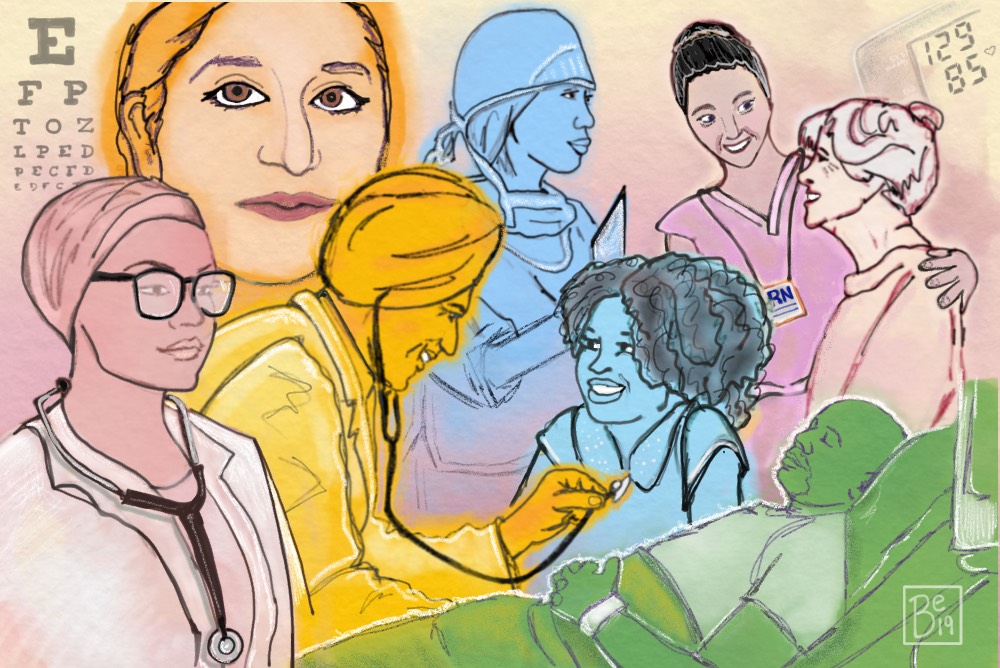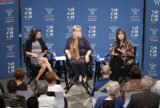
Illustration by Be Boggs.
No sector in the state of California relies more on immigrants than health care. One-quarter of the health workforce—from nurses to pharmacists to home health aides—and nearly one-third of all doctors and surgeons are foreign-born. And, according to some studies, patients of foreign-trained health providers actually do better than patients who rely on native-born Americans. How have immigrants working in health care changed the standards and culture of our hospitals and clinics? Do cardiologists from India handle patients with high blood pressure in different ways? Might a geriatric specialist trained in Latin America approach end-of-life issues with a distinct perspective? And how have immigrant providers shaped the poor and rural California communities where they are more likely to practice? UCLA School of Medicine health policy researcher Yusuke Tsugawa, former director of the Central California Center for Excellence in Nursing Pilar De La Cruz Samoulian, and Michelle Bholat, co-founder and executive director of the UCLA International Medical Graduate Program, visit Zócalo to examine how immigrants are changing the way medicine is practiced.
The Takeaway
Why Immigrants Make Us Healthier
As Doctors and Providers, Immigrants Care for Us. As Patients, They Force Our Health Care System to Be More Creative and Inclusive
Immigrants have been a force for change in the American healthcare system—as doctors and nurses who provide essential health services, and as patients whose needs have prompted hospitals and clinics …






